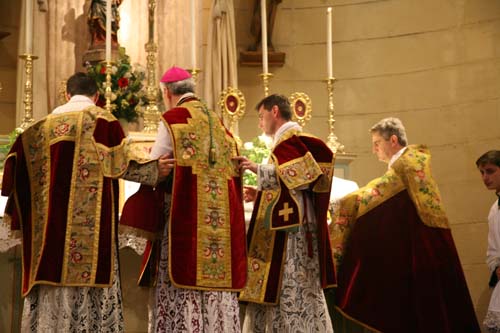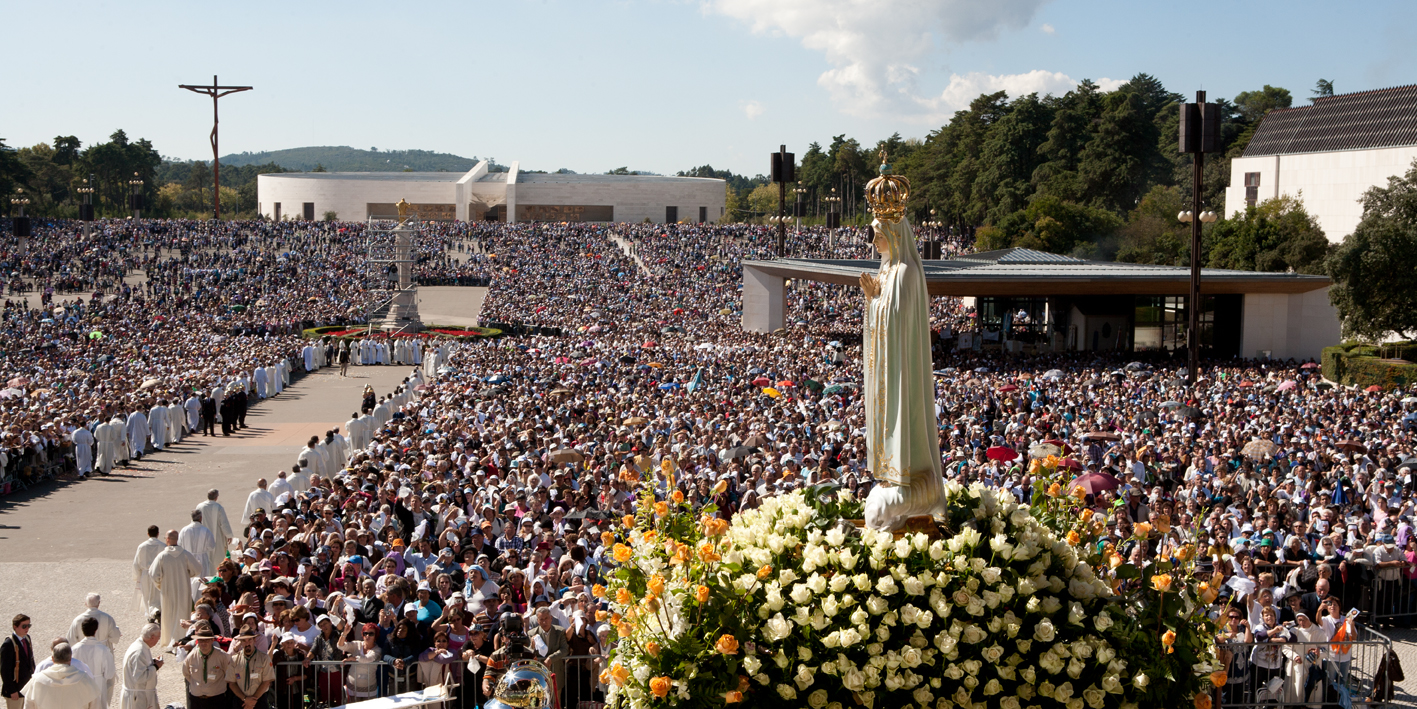
MEDIATOR DEI
ENCYCLICAL OF POPE PIUS XII
ON THE SACRED LITURGY
161. Thus, the liturgical year should be considered as a splendid hymn of praise offered to the heavenly Father by the Christian family through Jesus, their perpetual Mediator. Nevertheless, it requires a diligent and well ordered study on our part to be able to know and praise our Redeemer ever more and more. It requires a serious effort and constant practice to imitate His mysteries, to enter willingly upon His path of sorrow and thus finally share His glory and eternal happiness.
162. From what We have already explained, Venerable Brethren, it is perfectly clear how much modern writers are wanting in the genuine and true liturgical spirit who, deceived by the illusion of a higher mysticism, dare to assert that attention should be paid not to the historic Christ but to a "pneumatic" or glorified Christ. They do not hesitate to assert that a change has taken place in the piety of the faithful by dethroning, as it were, Christ from His position; since they say that the glorified Christ, who liveth and reigneth forever and sitteth at the right hand of the Father, has been overshadowed and in His place has been substituted that Christ who lived on earth. For this reason, some have gone so far as to want to remove from the churches images of the divine Redeemer suffering on the cross.
163. But these false statements are completely opposed to the solid doctrine handed down by tradition. "You believe in Christ born in the flesh," says St. Augustine, "and you will come to Christ begotten of God."[148] In the sacred liturgy, the whole Christ is proposed to us in all the circumstances of His life, as the Word of the eternal Father, as born of the Virgin Mother of God, as He who teaches us truth, heals the sick, consoles the afflicted, who endures suffering and who dies; finally, as He who rose triumphantly from the dead and who, reigning in the glory of heaven, sends us the Holy Paraclete and who abides in His Church forever; "Jesus Christ, yesterday and today, and the same forever."[149] Besides, the liturgy shows us Christ not only as a model to be imitated but as a master to whom we should listen readily, a Shepherd whom we should follow, Author of our salvation, the Source of our holiness and the Head of the Mystical Body whose members we are, living by His very life.
164. Since His bitter sufferings constitute the principal mystery of our redemption, it is only fitting that the Catholic faith should give it the greatest prominence. This mystery is the very center of divine worship since the Mass represents and renews it every day and since all the sacraments are most closely united with the cross.[150]
165. Hence, the liturgical year, devotedly fostered and accompanied by the Church, is not a cold and lifeless representation of the events of the past, or a simple and bare record of a former age. It is rather Christ Himself who is ever living in His Church. Here He continues that journey of immense mercy which He lovingly began in His mortal life, going about doing good,[151] with the design of bringing men to know His mysteries and in a way live by them. These mysteries are ever present and active not in a vague and uncertain way as some modern writers hold, but in the way that Catholic doctrine teaches us. According to the Doctors of the Church, they are shining examples of Christian perfection, as well as sources of divine grace, due to the merit and prayers of Christ; they still influence us because each mystery brings its own special grace for our salvation. Moreover, our holy Mother the Church, while proposing for our contemplation the mysteries of our Redeemer, asks in her prayers for those gifts which would give her children the greatest possible share in the spirit of these mysteries through the merits of Christ. By means of His inspiration and help and through the cooperation of our wills we can receive from Him living vitality as branches do from the tree and members from the head; thus slowly and laboriously we can transform ourselves "unto the measure of the age of the fullness of Christ."[152]

 inundado por um mistério de luz que é Deus e N´Ele vi e ouvi -A ponta da lança como chama que se desprende, toca o eixo da terra, – Ela estremece: montanhas, cidades, vilas e aldeias com os seus moradores são sepultados. - O mar, os rios e as nuvens saem dos seus limites, transbordam, inundam e arrastam consigo num redemoinho, moradias e gente em número que não se pode contar , é a purificação do mundo pelo pecado em que se mergulha. - O ódio, a ambição provocam a guerra destruidora! - Depois senti no palpitar acelerado do coração e no meu espírito o eco duma voz suave que dizia: – No tempo, uma só Fé, um só Batismo, uma só Igreja, Santa, Católica, Apostólica: - Na eternidade, o Céu!
inundado por um mistério de luz que é Deus e N´Ele vi e ouvi -A ponta da lança como chama que se desprende, toca o eixo da terra, – Ela estremece: montanhas, cidades, vilas e aldeias com os seus moradores são sepultados. - O mar, os rios e as nuvens saem dos seus limites, transbordam, inundam e arrastam consigo num redemoinho, moradias e gente em número que não se pode contar , é a purificação do mundo pelo pecado em que se mergulha. - O ódio, a ambição provocam a guerra destruidora! - Depois senti no palpitar acelerado do coração e no meu espírito o eco duma voz suave que dizia: – No tempo, uma só Fé, um só Batismo, uma só Igreja, Santa, Católica, Apostólica: - Na eternidade, o Céu!